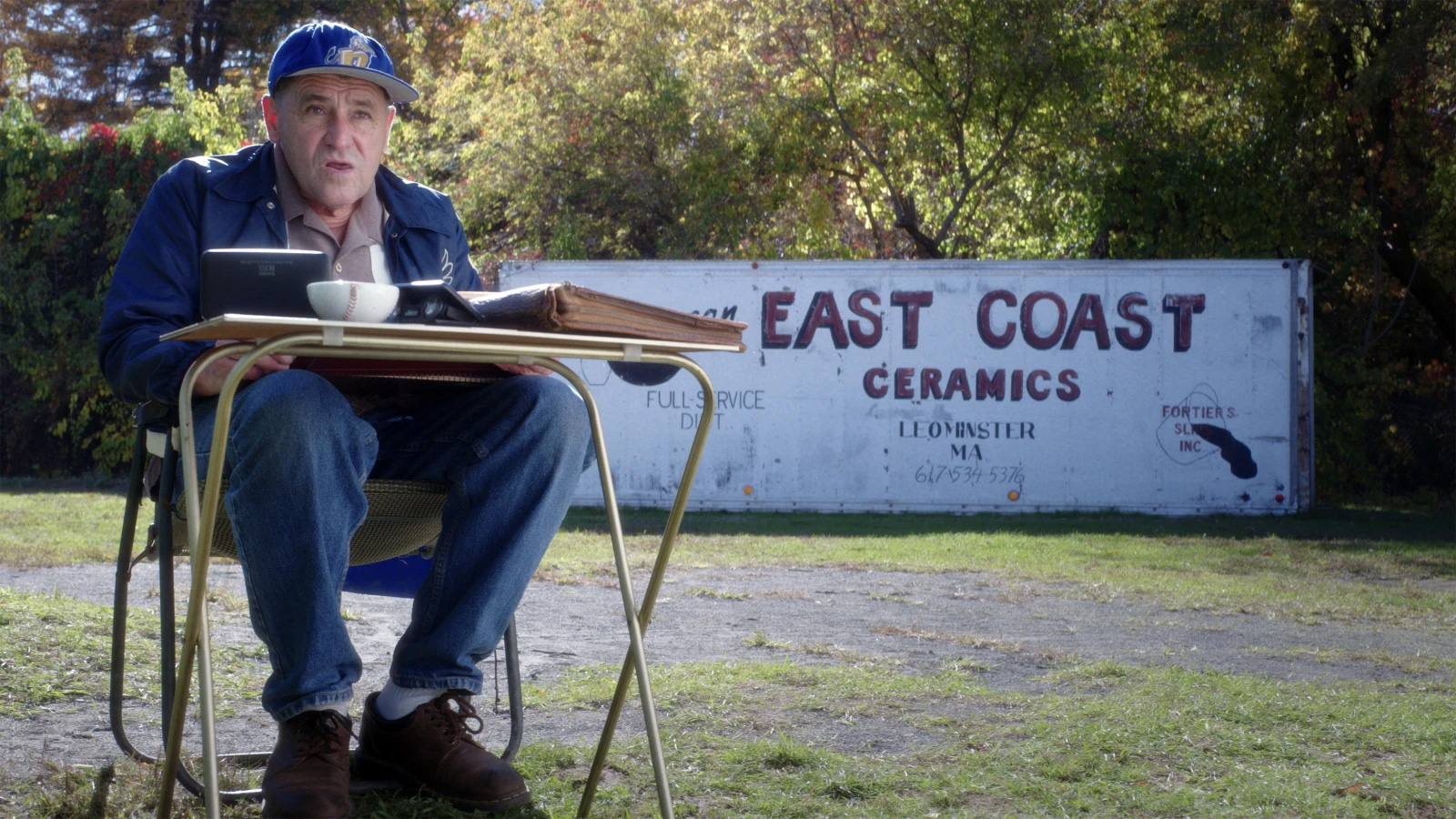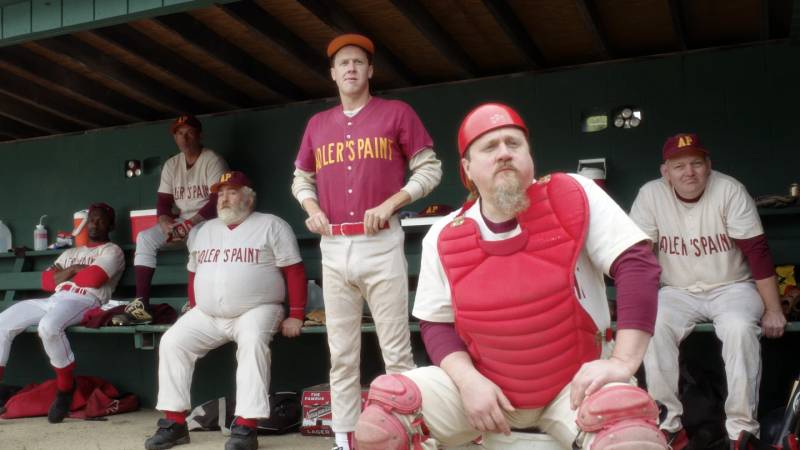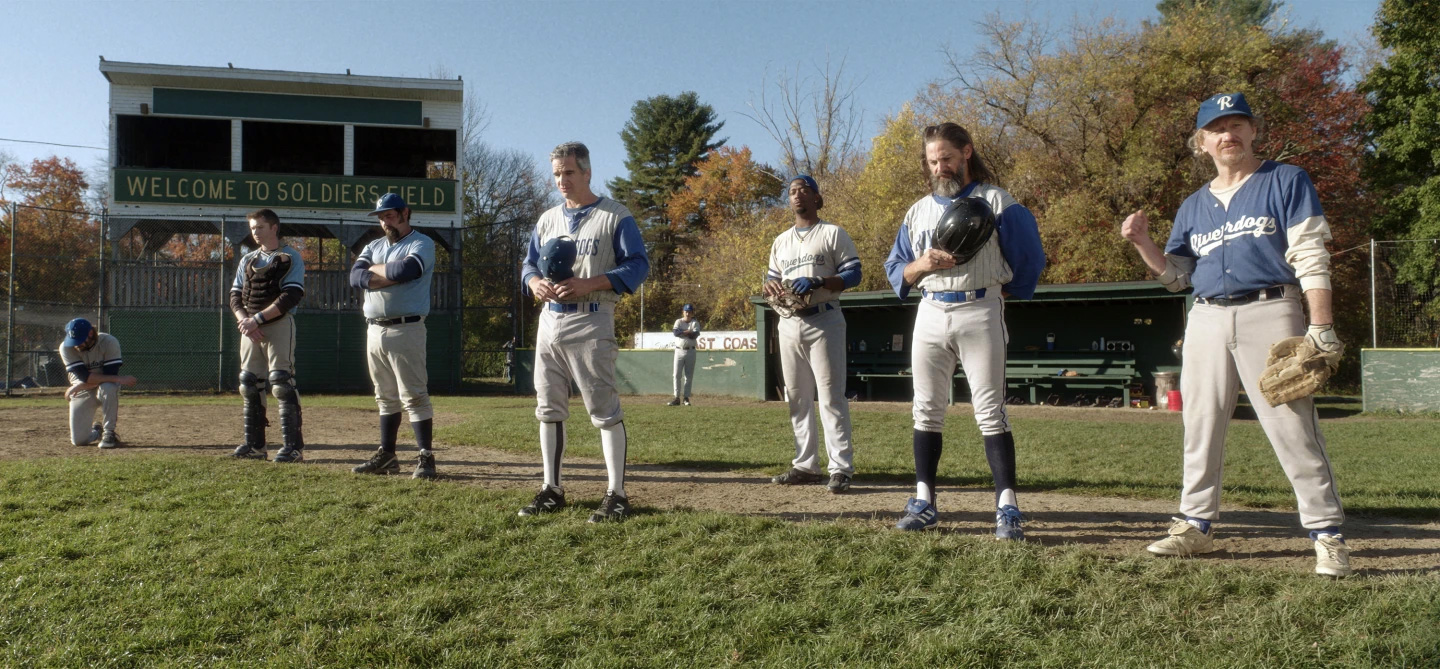In Carson Lund’s Eephus, two teams – the Riverdogs and Adler’s Paint – gather on a neighborhood field for a baseball game. The leaves are already starting to turn — “It’s getting late early,” as Yogi Berra said — and this is to be the final game for their adult rec league. The field is to be demolished.
No one would confuse them for all-stars. A suicide squeeze unfolds in creaky slow-motion. The rotund left fielder mutters “Mother McCree” under his breath when the ball is hit in the gap. But, regardless of skill level, they all care sincerely about the game.
Eephus, as leisurely as a late-August double header, simply unfolds along with their game. Except to chase a foul ball or two, the movie stays within the lines of Soldier Field, the nondescript Massachusetts baseball field they’re playing on sometime in the 1990s. It spans nine innings, with dugout chatter and fading light. In this slow-pitch gem of a baseball movie — a middle-aged Sandlot — time is slipping away, but they’re going down swinging.

Money, analytics and whatever’s on ESPN can sometimes cloud what sports is to most people: A refuge. Eephus, in that way, is a change-up of a baseball movie, an elegiac ode to the humbler weekend warriors who are driven by nothing but genuine affection for the game. Richly detailed and mordantly deadpan, Eephus adopts their pace of play, soaking up all the sesame-seed flavor that goes along with it.
The title comes from an unnaturally slow pitch not slung but lobbed toward home. When I was a kid pitching, I liked to uncork one from time to time, much to my coach’s dismay. The metaphor isn’t hard to grasp. One player describes it as a pitch you can get bored watching, even making you lose track of time.



